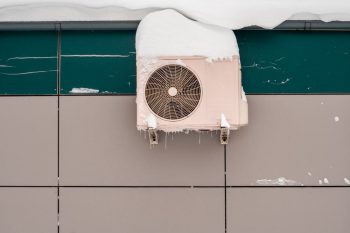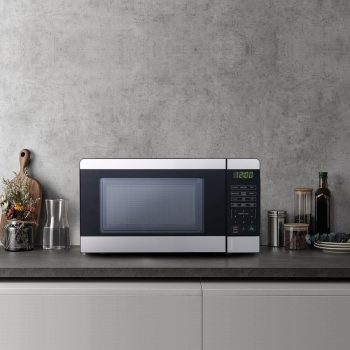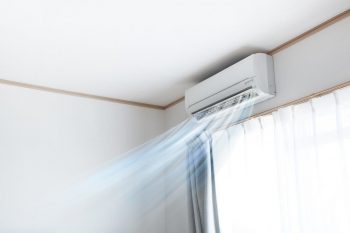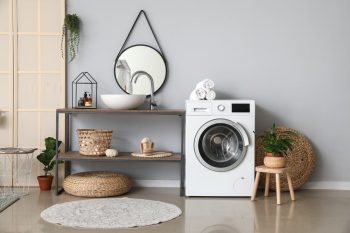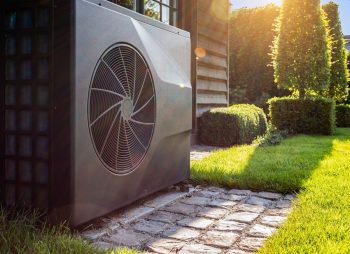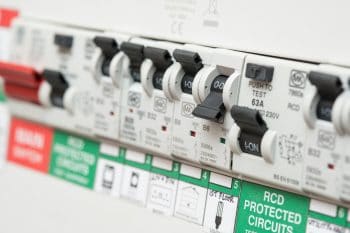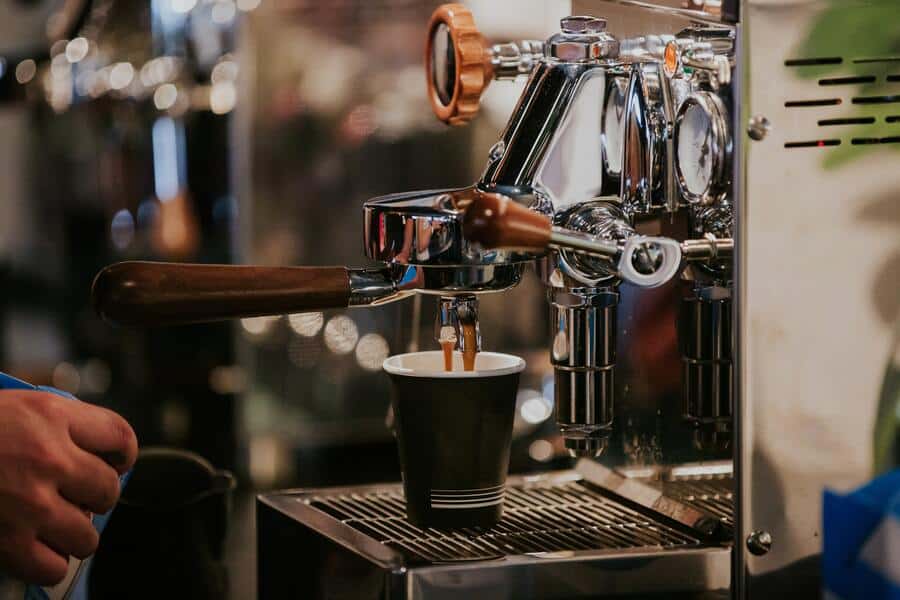
Many of us have experienced that early morning frustration of being jolted awake by our coffee machine’s loud, obnoxious sound. But have you ever stopped to wonder why these machines are so noisy in the first place?
If so, this article will answer that question and highlight why these devices make such a racket.
From the inner workings of the machine to design choices made by manufacturers, many factors contribute to the noise that coffee machines produce.
Therefore, if you are a coffee lover, tired of being woken up by your morning brew, or just curious about the science behind coffee machines, keep reading! Because you are about to dive into the fascinating world of coffee machines and discover why they are so noisy.
Coffee is a staple in many households and is considered the most popular drink in the world. So naturally, any noisy appliance is typically a cause of worry, but if a coffee machine is loud, you do not have to worry too much.
Coffee machines are noisy by default because coffee-making involves a lot of sound-generating processes. Here is a list of components and processes that produce sound in a coffee maker.
- Grinder
- Boiler
- Pump
- Steam wand
- Drip tray
- Brewing process
- Loose parts
- Clogging
- Built-in fan
If your coffee machine makes unusual sounds, check for any damage or unhinged parts. Always follow the manufacturer’s instructions when handling household appliances.
This article explains why coffee makers are so noisy and the processes that make the most noise. You will also find many helpful tips about reducing coffee machine noise and the quietest coffee makers.
9 Reasons Why Your Coffee Maker Is Making Noise
A good cup of coffee is the result of many processes. You may think it is as simple as boiling coffee in a pot and pouring it into a pitcher. However, the coffee machine has many components. Moreover, each component has a unique function that makes your coffee rich and delicious. And most of the noise from your coffee maker is generated by these components working.
Some of these components make noise as a by-product of the operation and are not a cause of concern. However, sometimes, you may need to check for blockage and take steps toward maintenance.
Here’s a list of things that contribute to the noise coming from your coffee maker.
1. The Grinding Process
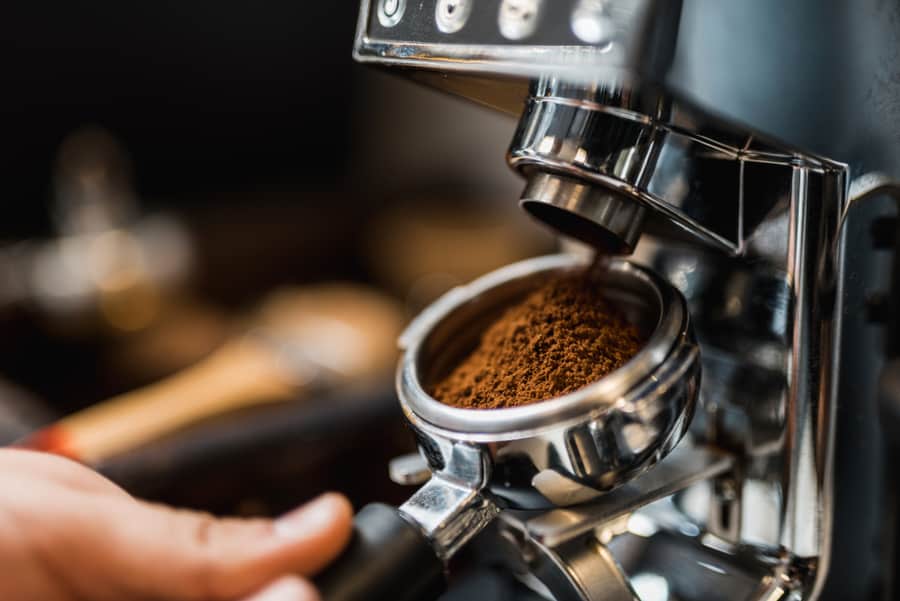
The grinding process is the first and most significant source of noise from coffee machines. Coffee machines come in two main types: manual and automatic.
Manual coffee machines, also known as hand grinders, can be very loud, especially if you grind your coffee fresh each time. On the other hand, automatic coffee machines have a built-in grinder, which can be just as loud.
The grinder must rotate at high speed to crush the coffee beans into a fine powder. This grinding process requires a lot of force to granulate the coffee beans into smaller pieces, generating noise caused by the friction between the beans and the grinder blades.
2. The Pumping System
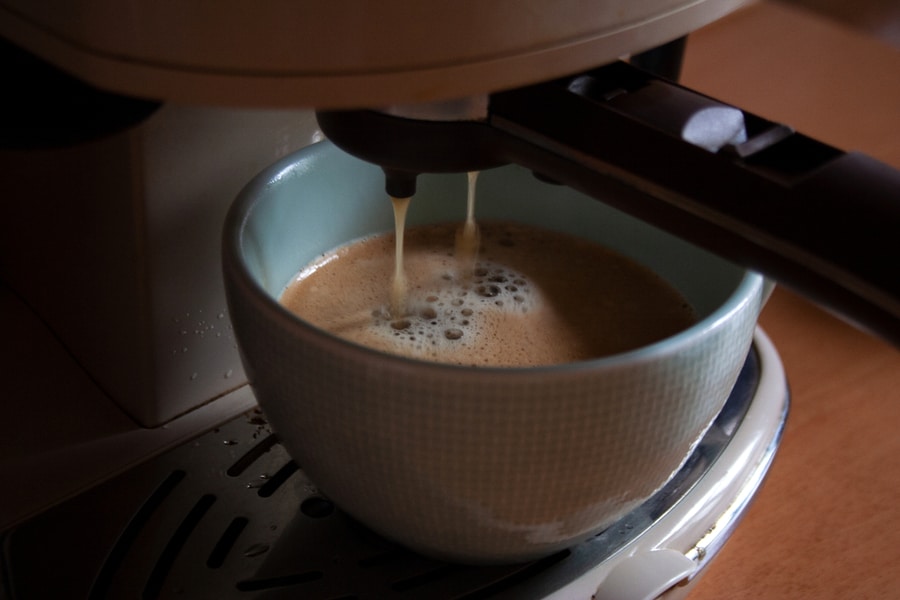
Another source of noise from coffee machines is the pumping system. Coffee machines use a pump to force water through the grounds and extract coffee. Pumping is an essential step in coffee making.
The pump can generate a lot of noise, especially if it is not well-maintained or is working too hard. If the pump makes an unusual noise, it could indicate a problem, such as a blockage or a leak, requiring maintenance.
3. The Boiling Process
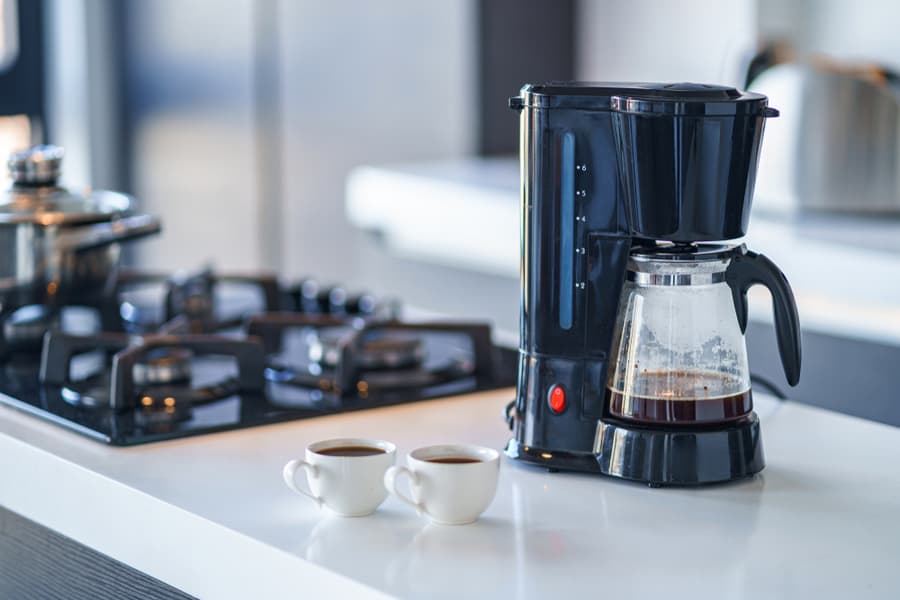
Some coffee machines have an internal boiling water system which can be a source of the noise. In addition, coffee making involves a lot of heat emission, and processes that produce heat can be noisy.
As the water is heated, it begins to boil and steam, which can create a loud hissing sound. Some coffee machines use a steamer, which may be less noisy than the boiler but still generate noise.
4. Milk Frothing
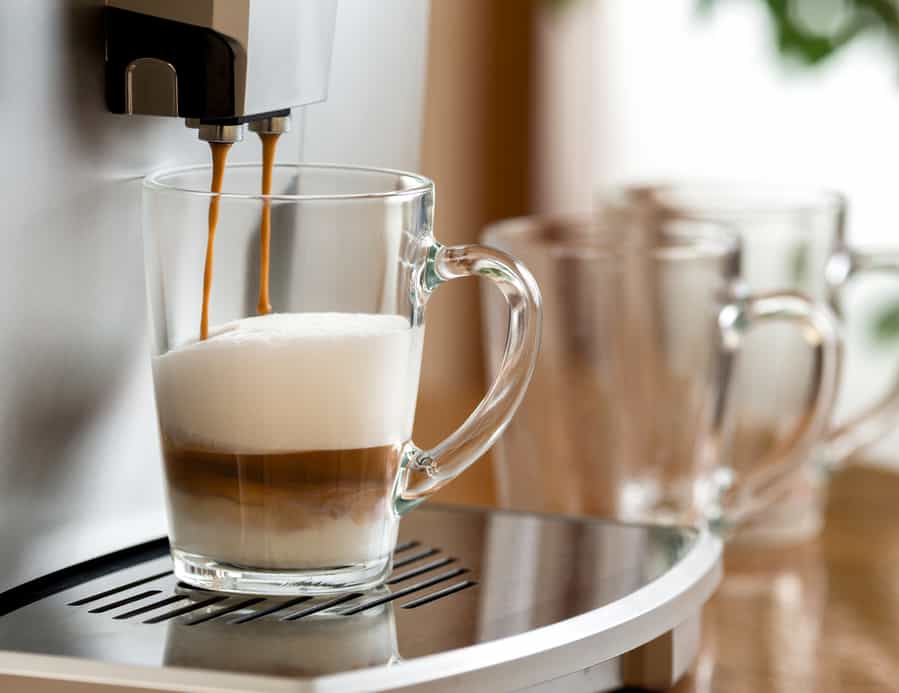
Frothed milk sitting on top of a warm cup of cappuccino is a delight. Many espresso machines have steam wands to froth the milk, making it warm, smooth, silky, and bubbly.
Although the end product of milk frothing will leave you with a nice hot cup of coffee that is relaxing to sip, the process is too noisy. When you put the steam wand in your cup of milk, it causes the oils in the milk to start dissolving, expanding and bubbling.
This whole process produces many splashing sounds that do not stop until the milk has completely frothed.
5. Brewing
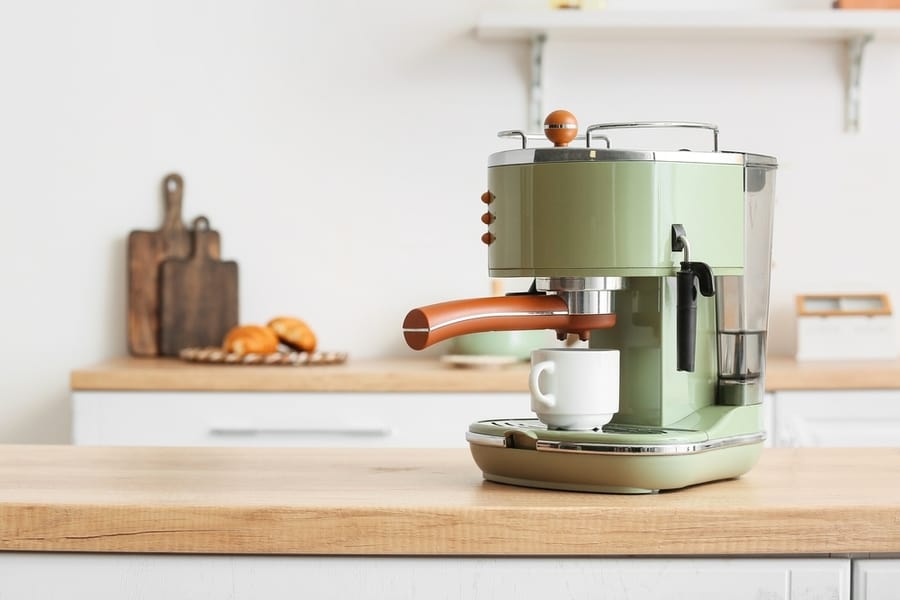
Brewing the coffee beans is what gives your coffee a unique rich flavor. When the coffee is being brewed, there may be a gurgling or splashing sound as the hot water is circulated through the coffee grounds.
If the coffee machine uses a glass pitcher or carafe, the hot water or espresso splashing on the glass may make the noise more audible.
Some espresso machines are designed to make the brewing process quieter so you can enjoy the smell of freshly brewed espresso without being irritated by the noise, but the process is typically very noisy.
6. Drip Tray
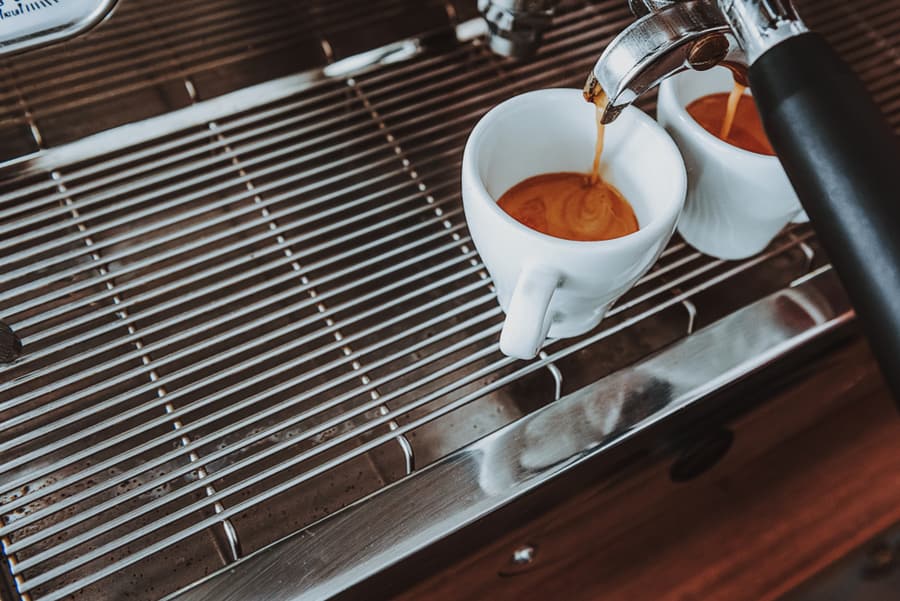
The drip tray may not be as noisy as other parts of your coffee maker, but it contributes to some extent. The drip tray can be a noise source, especially if it is not positioned correctly in the machine.
When the coffee from the appliance falls into the cup placed on the drip tray, the drip tray vibrates, which causes noise. If the drip tray of your coffee machine is fitted correctly and does not move too much, the noise will reduce.
However, the drip tray may still make a little noise. Some people may find the sound of espresso pouring into the cup soothing or relaxing, but it may sound irritating to others.
7. Built-In Fan

Many electronics now have fans to cool them down if they begin to overheat. Similarly, coffee machines, especially the new models, have an internal fan to dissipate the heat.
These fans contribute to the overall noise level. For example, when the coffee machine works hard (usually when a lot of coffee is produced), the fan may produce a whirring or buzzing sound.
The sound may be muffled when the coffee machine is not making much heat but becomes louder if the coffee machine has been operating for a long time and started to overheat.
8. Unfitted Machine Parts
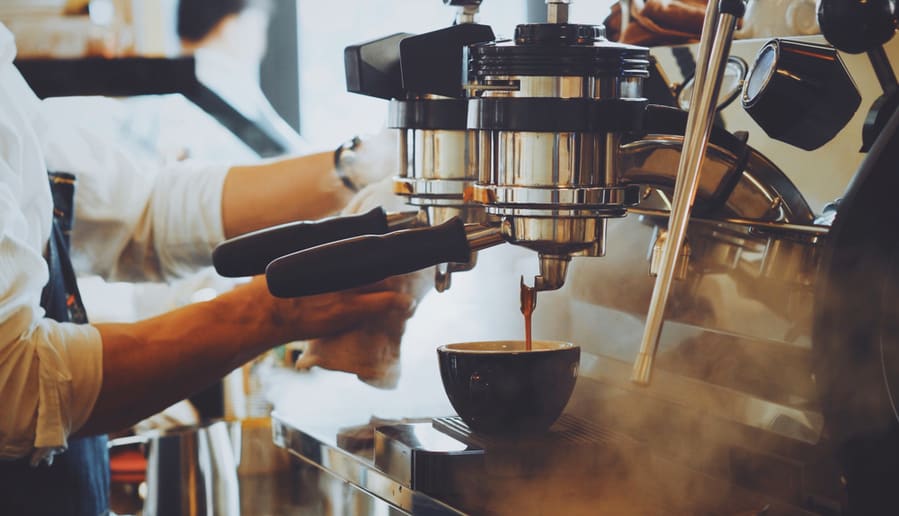
Noise is typically not a cause of concern regarding coffee machines. Coffee machines produce a lot of noise, and it is normal. But, if you detect any unusual noise from your coffee machine, you may need to check for loose parts.
Over time, these parts can become loose and make clanging sounds. Be sure to check the tubes, valves, connectors, and other removable parts and secure them to dissipate the noise.
9. Clogged Valves
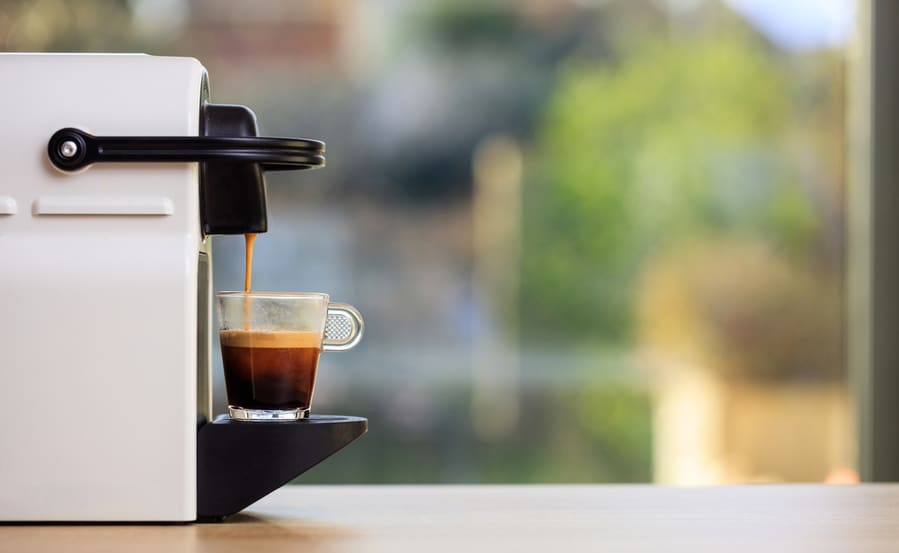
Another reason your coffee maker may be making unwanted sounds is clogged valves. A clogged valve will cause the steam to build up and create pressure. This built-up steam then gets released with a loud sound, contributing to the noise.
Also, if the boiler is clogged up, the machine pump will have to work significantly harder, producing loud and bothersome sounds.
How To Reduce Coffee Machine Noise
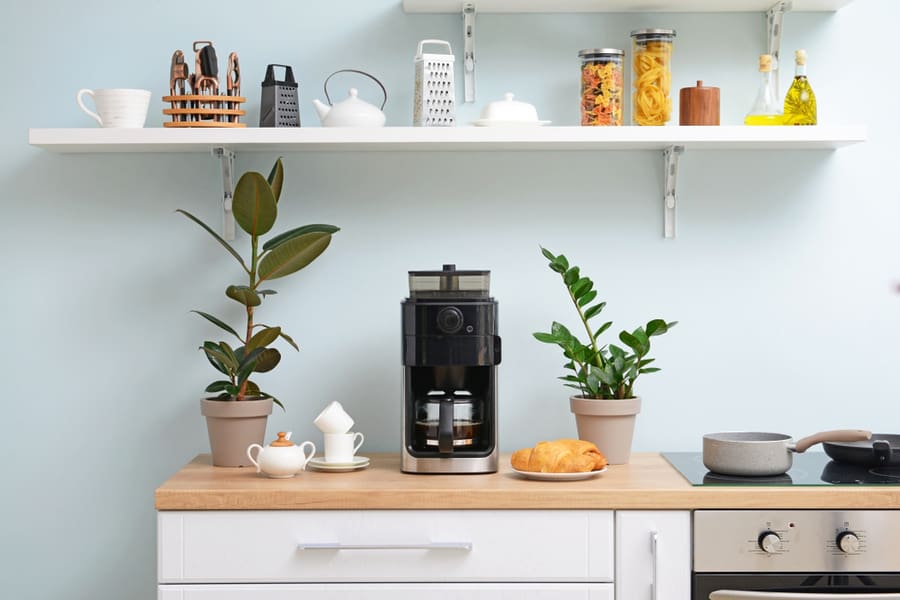
If you are looking for ways to reduce your coffee machine’s noise, here are a few tips that will help.
- Place the coffee maker on a sturdy, non-slip surface like a countertop or table. Place a non-slip mat under your coffee machine. This will help minimize the vibrations and noise during the brewing process.
- Encasing the coffee machine with materials specifically designed to reduce noise, such as foam padding, will help absorb the sound it produces. You may also add rubber feet underneath the machine to help reduce vibrations and the sound transfers from the coffee machine to the counter it sits on.
- Suppose you can not change the model of your coffee machine or insist on using a manual coffee maker. In that case, you can install a soundproof cabinet around your coffee machine to help reduce the sound that escapes the environment.
- Clean the coffee maker regularly to ensure all parts work smoothly and quietly. Any debris or buildup can cause unnecessary noise.
- Use a high-quality coffee filter, such as a gold-tone or permanent filter, instead of paper filters. These filters are less likely to cause noise during the brewing process.
- Use a high-quality, insulated carafe to keep coffee hot and reduce noise from the brewing process. Look for a carafe with a tight-fitting lid to help keep the heat and moisture in.
- Place the coffee maker in a quiet location, away from high-traffic areas or other noise sources. Choose a spot where the coffee maker is surrounded by sound-absorbing materials such as curtains, carpeted flooring, or soft furnishings, if possible.
- Check the water level in the coffee maker regularly to ensure that it is filled to the appropriate level. Overfilling or underfilling that carafe can cause the machine to make more noise than necessary.
- Consider purchasing a coffee maker with a built-in noise-reducing feature, such as a quiet brew or noise-canceling technology. Many modern coffee makers come equipped with these features to help minimize noise.
- Regularly check for loose parts or worn-out components that may be causing noise during brewing. Replace any damaged or worn-out parts as needed to ensure your coffee maker works quietly and efficiently.
Conclusion
Processes like grinding, pumping, brewing, and boiling, along with a few components of a coffee machine, contribute to the loud noise it produces. By understanding these sources of noise, you can take steps to reduce the noise from your coffee machine and enjoy a quieter cup of coffee.
Whether you like a manual coffee grinder or an automatic coffee machine, something is always available to suit your needs and help reduce the noise in your home.
Frequently Asked Questions
Is There Any Noise Reduction Apparatus for the Coffee Machine?
You can install rubber feet underneath your coffee machine or use a non-slip rubber mat to reduce the vibrating sound produced by the coffee machine.
You may also use foam or rubber padding around your coffee machine since they help absorb unnecessary sounds. Also, if you work with a hand grind or a loud automatic coffee maker, build a noise-reduction cabinet around it.
These cabinets work with spacious kitchens, and you may find it difficult to function if you own a small kitchen. You can also search the market for coffee makers with noise-reduction technologies or built-in sound absorption components.
Which Coffee Maker Model Makes the Least Noise?
Here are the 5 most quiet coffee makers in the market.
- CUISINART PerfecTemp 14-cup Coffee Maker: This coffee maker is the best in the market for its noise reduction technology, self-cleaning, and auto delay-start system.
- BLACK DECKER 60 Oz Coffee Maker: This coffee maker has an insulated carafe to reduce noise and an auto delay-start system. The insulated metal carafe keeps the coffee warm for hours.
- Ninja CE251 60 Oz Coffee Maker: This coffee maker features a removable water reservoir for hassle-free cleaning and refilling. Also, it has a 24-hours delay-start timer.
- Hamilton Beach 12-cup Coffee Maker: Automatically shuts down after 2 hours of staying inactive and features delay-start technology.
- Mr.Coffee BVMC 10-cup Coffee Maker: Its insulated carafe keeps coffee hot and steamy for hours, reducing brewing noise. The best feature of this coffee maker is its self-cleaning system.
You will find other coffee machine models which are budget-friendly and also have noise-reduction properties. The above-mentioned coffee makers are ranked best by SCAA certification.

